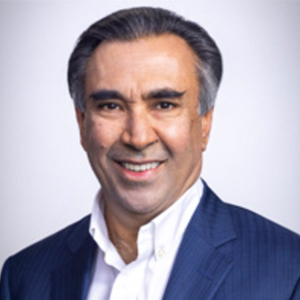Project ECHO, based at The University of New Mexico Health Sciences Center, has partnered with the World Health Organization to establish the WHO Collaborating Center for Digital Learning in Health Emergencies. It will be the first WHO Collaborating Center specifically created to promote digital learning to strengthen emergency preparedness and response.
Designed to build capacity for emergency response in WHO’s headquarters, regions, countries, and special units, this Collaborating Center will enable WHO to leverage Project ECHO’s digital learning expertise to strengthen public health emergency preparedness and response workforce capacity, helping WHO member states prepare for new global health emergencies.
“The COVID-19 pandemic drove an urgent need for the WHO to leverage virtual learning in new ways so that we could deliver critical training and support,” said Heini Utunen, Unit Head, Learning & Capacity Development, WHO Health Emergencies Programme.
“ECHO’s more than twenty years of experience in delivering complex public health and clinical knowledge rapidly, at scale, and at low cost not only helps advance WHO objectives but will help ensure our member states are prepared for the next crisis,” Utenen said.
Through the Collaborating Center for Digital Learning in Health Emergencies, Project ECHO will support the design and implementation of digital learning initiatives using the ECHO Model’s case-based virtual communities of practice, webinars, and other online tools to provide technical assistance and training, supporting capacity building across geographically dispersed locations, which often have limited resources. Project ECHO will also support monitoring and evaluation of digital learning activities and the promotion and dissemination of lessons learned and best practices in digital learning.
“Building on the success of our partnership with the WHO in addressing the significant global health challenges posed by COVID-19 and preparing for future pandemics, we are proud to launch the first Collaborating Center for Digital Learning in Health Emergencies,” said Sanjeev Arora, MD, Project ECHO Founder and Director.

“The ECHO Model is uniquely suited to help global organizations, governments and non-governmental organizations (NGOs) respond to emergencies, from pandemics and natural disasters to health care crises during violent conflicts, as we’ve seen in Ukraine and Sudan,” said Arora.
Since the outbreak of war In Sudan, ECHO’s partners working in Sudan have collaborated with Project ECHO, WHO HQ and WHO’s Eastern Mediterranean Regional Office to provide virtual trainings connecting leading global health care experts to more than 86,000 local Sudanese health care workers to share best practices in emergency medicine, infectious diseases, and mental health. After the outbreak of war in Ukraine, ECHO sessions were coordinated and deployed in under three weeks, bringing trauma care training to hundreds of health care workers with little or no prior trauma experience.
“With a shared mission to build a higher quality, more resilient global health workforce, we have worked closely with WHO to democratize knowledge and best practices for years,” said Bruce Struminger, MD, MA, FACP, Senior Associate Director for Project ECHO and leader of ECHO’s Global Health Initiatives.
“We look forward to continuing to build our strong partnership with the WHO by providing public health leaders and frontline health workers in the most underserved communities with equitable access to life-saving knowledge and best practices.”
ECHO has collaborated with the WHO on various areas of health care training and mentorship, including integrated disease surveillance and response, infection prevention and control, antimicrobial resistance, COVID vaccine distribution, patient safety, HIV and viral hepatitis, and public health laboratory strengthening.
With program content and subject matter experts from WHO, ECHO will contribute its expertise in strategic planning and the design and implementation of digital learning programs. WHO and ECHO both bring established global and regional networks to this relationship, which has its roots in the first WHO AFRO-ECHO collaboration in April 2020 with the launch of a series of COVID-19 response webinars. Since that time, Project ECHO and WHO collaborative virtual learning activities have seen more than 178,000 attendances from public health program managers, policymakers, and frontline health care workers in more than 230 countries and territories through more than 415 virtual learning sessions.
About Project ECHO
In 2023, Project ECHO is celebrating 20 years of disseminating knowledge in rural and under resourced areas. Founded and headquartered at The University of New Mexico Health Sciences Center in Albuquerque, N.M., Project ECHO empowers local community providers to improve the well-being of people in New Mexico and around the world.
About WHO Collaborating Centers
WHO Collaborating Centers are institutions such as research institutes, parts of universities or academies, which are designated by the WHO Director-General to carry out activities in support of the Organization’s programs. Currently there are over 800 WHO Collaborating Centers in over 80 Member States working with WHO on areas such as nursing, occupational health, communicable diseases, nutrition, mental health, chronic diseases and health technologies.
